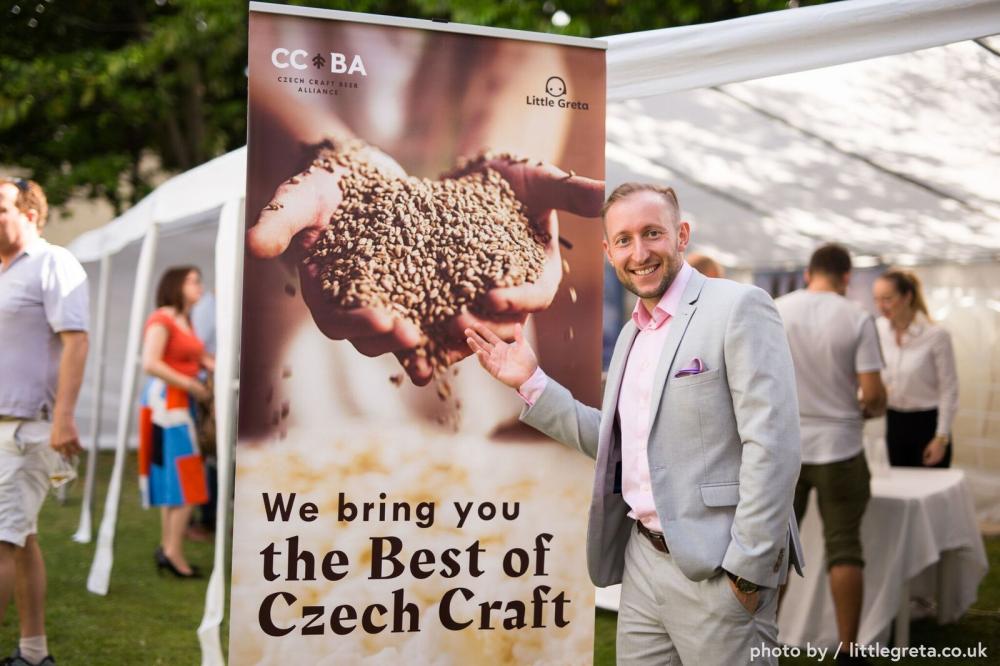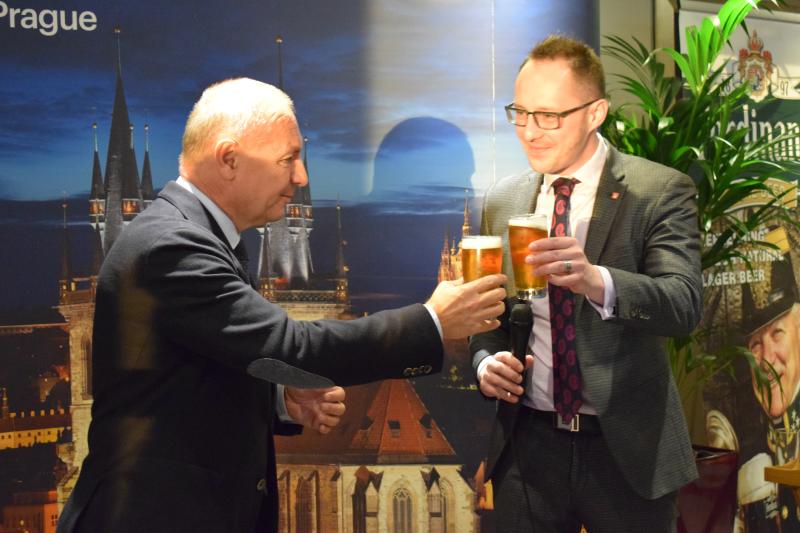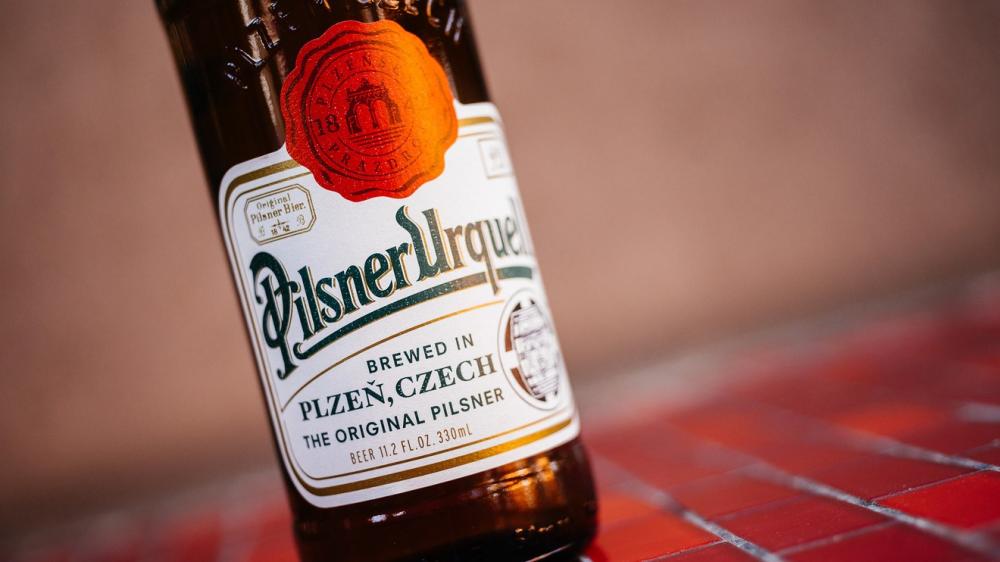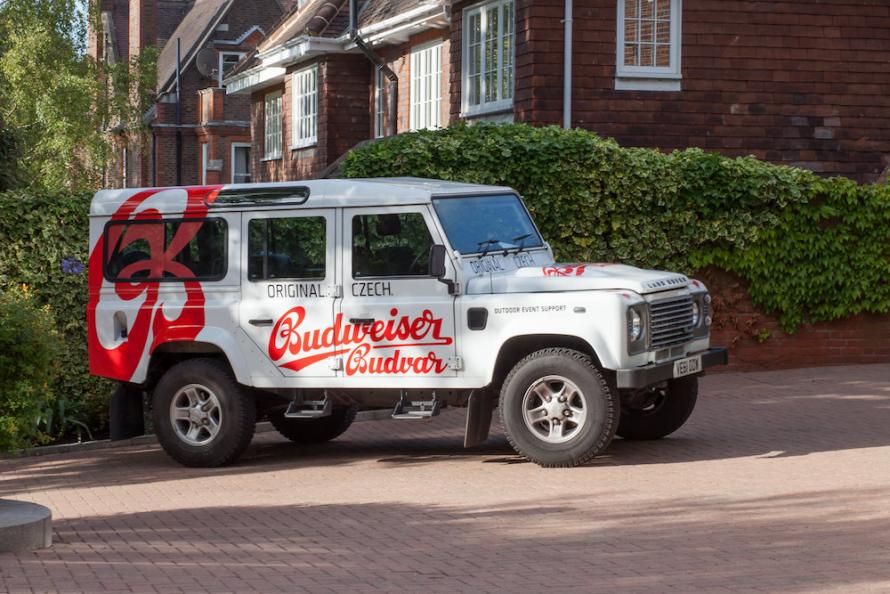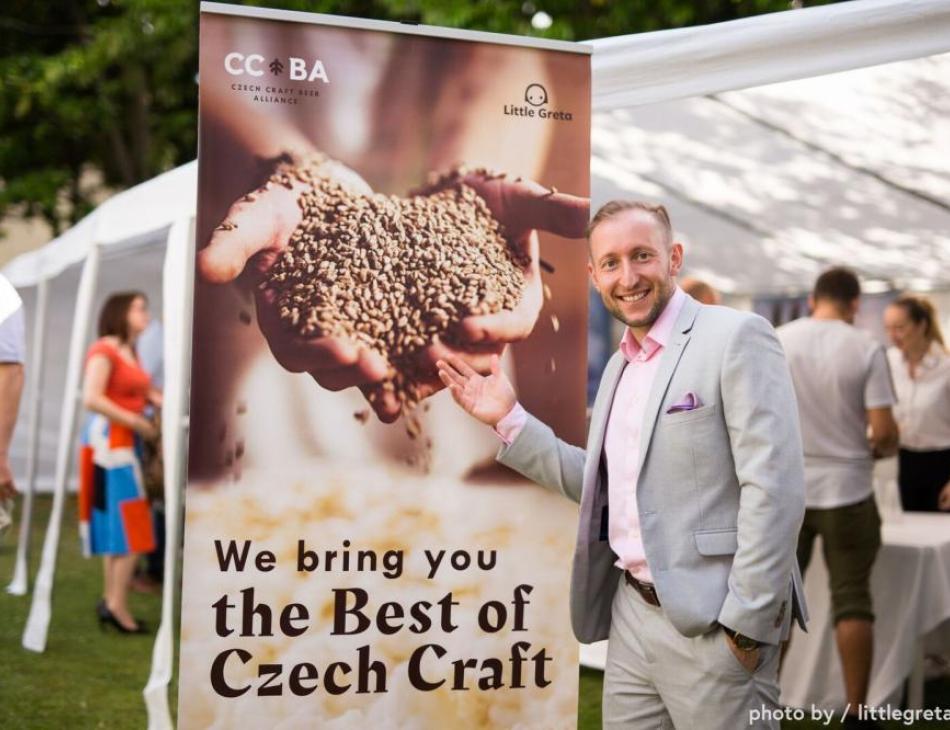Czech Mate for Euroboozer Around Inaugural ‘Czech Beer Week’
It could be described as “Czech Mate” for Euroboozer, a leading UK importer of fine speciality craft brewed beers, which has teamed up with CzechTrade’s London branch to showcase the best of the Czech Republic's beer wares in 2019 next month.
Based in Abbots Langley, Hertfordshire, Euroboozer is organising a number of events around the annual 'Czech Beer Day' - being held this year on 19 June - at the Czech Embassy in London’s Notting Hill - that illustrates the breadth and diversity of beer production across the central eastern European country.
After last year’s success this year comes with something of a twist, namely the inaugural 'Czech Beer Week', scheduled to run from the 17-23 June. There will be a large selection of Bohemian beers and pilseners on show, and even a beer tour taking in a few pubs.
The multi-legged campaign commenced with ‘Real Bohemian Czech ager Workshop’ at the Czech Embassy in mid-May with master brewer Jan Kočka, Vice-President of the Association of Microbreweries in the Czech Republic, before a series of tastings, meet the brewer sessions, beer pairing nights, and events in bars, pubs and restaurants around the UK during Czech Beer Week.
Over 40 beers are set to be showcased for the first time in Britain in the shared grounds of the embassy of the Czech and Slovak republics, including Bohemia Regent, Cvikov, Kutna Hora and Kanec beer brands plus a number of more well-known brands in Britain.
The Czech Craft Beer Alliance (CCBA), which is headed up by London-based lawyer Dr Filip Celadnik, will be in attendance at the upcoming Czech Beer Day and unveil a few more beers in their stable. Last year the Alliance represented six breweries committed to traditional brewing such as double mashing (grain mixed with water), fermentation in open vessels and long maturation in cellars.
The names in the CCBA included: Hubertus (Pivovar Kácov), founded in 1457 and making it one of Europe’s oldest; Permon Craft Brewery; Cvikov Pivovar, which uses water sourced from the Lusatian Mountains with a highland heritage; Kutná Hora, a brewery that was shut down by Heineken but restored in 2017 through beer enthusiasts efforts and now exporting to China amongst other markets; Breclav (Zemecky Pivovar), which dates back to 1522; and, Slavkovsky Pivovar, which most people would know better for being located near the battlefield of Napoleon’s greatest victories - the Battle of Austerlitz.
Incidentally, if you visit the town of Slavkov u Brna (aka Slavkov by Brno), which I did on a ‘Beer Mission’ last September organised through Czech Trade, the Chateau here is where Napoleon gave a victory speech after defeating the combined armies of the Russian and Austrian empires on December 2, 1805. It is certainly a worth a stop off in the South Moravian region.
Overall Czech breweries increased their output by 4.7% in 2018 compared to a year earlier, with the total production growing to 21.3 million hectolitres (hl) according to the Czech Beer and Malt Association. The result was driven largely by robust exports - up 11.8%. And, for the first time ever, this performance surpassed the 5m hl threshold – coming in at 5.2m hl for the year.
At the Beer Workshop, Mr Kočka lead beer writers and the trade through 10 beers and explained some of the finer nuances of the brewing craft (e.g. use of Czech Saaz hops, the concoction or mashing process, activating the enzymes and how to remove the sugar from the malt, and International Bitterness Units (IBUs), in the Czech Republic, which currently has around 450 microbreweries.
For the uninitiated, the grading system for beers in the Czech Republic uses degrees (°) or plateaus – 10, 11, 12, etc. In essence, a 10° beer is for “daily drinking” while 12° is for “Sunday drinking”, Kočka explained. Broadly 10° translates to c.4% ABV and 12° corresponds to around 5% ABV.
“The sector is growing at around 1 new microbrewery a week and there are some predictions that it could expand to between 600 and 800. Years ago we would have just been content and happy if the figure had reached 250 or 300.” In the capital Prague, there are about 35 microbreweries.
Ales Opatrny, Head of the Economic & Commercial Section at the Czech Embassy in London, commenting after Kočka’s presentation in the cinema below the embassy said: “We would like also to secure a similar market share for Czech and Morvavian wine as for Czech beer in the UK. It’s a commodity that is not as well known as our beer, but we’d like to change that.” To that end, a B2B VIP ‘Czech and Moravian Wine Day’ was scheduled for 21 May at the Czech embassy, offering 15 unique award-winning producers of traditional, organic, bio and sustainable wines.
Czech and Moravian wines have been blazing a trail across the globe of late at international wine competitions - winning some prestigious medals. For example, in the Decanter World Wine Awards 2018 the Czech Republic won a Platinum medal (for Vinařství Gotberg, Ryzlink Rýnský, Moravia, Czech Republic 2016).
In 2015 wine companies from Moravia punched above their weight at the prestigious Vinalies Internationales competition held in Paris. In total, they won 30 medals, one fifth of them being gold. And, the thirty best wines from Moravia, for example from the region around Mikulov, were included among the world’s top wines in the 1000 Vins du Monde publication.
Martyn Railton, Euroboozer’s managing director, commenting said: “The Czech Republic is steeped in beer-making history and heritage, and Czech beers are a symbol of quality around the world. The Czech beer scene has really started to thrive since the early 1990s, but most traditional Czech breweries date back to the medieval times, with Bohemia Regent brewing without interruption as far back as 1379."
He added: “We only get to see the big breweries over here, many of which are owned by ‘Big Beer’. Local breweries are now being brought back to life all over the country after years of being closed or run down by the government and international PLCs. They’re now thriving, with many using tradition Czech lager brewing techniques to make a huge array of excellent quality delicious Czech Pilsners."
“For this reason, we’re incredibly proud to be working alongside CzechTrade and Czech Tourism to launch the inaugural Czech Beer Week in the UK. I believe most UK consumers have only just scratched the surface when it comes to the country and its beer, so we have an exciting calendar of events to activate, educate and excite over the next six months.”
Martin Macourek, director for CzechTrade (UK and Ireland), added: “We are proud to launch the Real Bohemian Lager category in the UK. Indeed, with the UK’s consumers continuing to search out quality beers from around the world, we’re confident the plan in place will ensure Czech beer continues to be a beacon of quality in the UK and around the world.”
Cvikov Brewery, which I tasted for the first time in Prague on the aforementioned Beer Mission last year alongside Euroboozer’s Railton, Darius Burrows, Managing Director of Bolton-based Trilogy Beverage Brands and Viktor Tkadlec, Cvikov Brewery director, produces a number of beers that are mostly named after the peaks of the Lusatian Mountains near the south-eastern border of Germany.
But they are complemented during over the course of the year by specials produced by Cvikov such as their Spring 11° (degrees), Rye Special, Kleis (first brewed in the era of the First Czechoslovak Republic) and their Anniversary 14°.
In addition to a cosy interior at this brewery - Restaurace Sladovna - designed to seat up to 85 people in the former malthouse and that offers Czech cuisine with a modern concept, Kleis Hotel in the brewery’s former granary - above the restaurant - has recently seen rooms (single and double) built out with a total capacity of 42 bedrooms (costing from around €70 (c.£63) a night).
Indeed, besides the fine beer and lager on offer in the Czech Republic, there are some amazing places to visit outside the capital Prague, such as Kutná Hora, a city east of Prague that is known for the Gothic St. Barbara's Church with medieval frescoes and flying buttresses.
Also notable here is Sedlec Ossuary, a chapel adorned with human skeletons. On the site of a former Cistercian monastery one finds the Gothic and baroque Cathedral of the Assumption. And, the Czech Museum of Silver recalls the city’s silver-mining history with a replica medieval mine. Silver from this city was used in the making of the Czech crown jewels, which can be found on display in Prague cathedral.
Another town worth checking out is Třeboň in South Bohemia, which is the location of Regent Brewery and produces a fine selection of beer including Bohemia Regent 12°.
The town itself is surrounded by fishponds that were dug out by hand and hard labour (incredible as it seems now when looking across from the brewery). It is also known for its spas and therapeutic treatments. Třeboň Chateau is a large renaissance complex with exhibits on the noblemen who lived there.
So, even if the beer doesn’t take your fancy in the beer halls of Prague like U Medvidku brewery (translates as ‘At the Little Bears’), where Czech composer Dvorak brought a visiting P.I. Tchaikovsky in 1888 and one of a dwindling number of classic Czech pubs operating in Old Town, U Fleků, or elsewhere - although I somehow doubt it, one can still enjoy the rich history of the Czech Republic. And, after a hard day exploring why not relax in a beer or wine spa.
After visiting the brewery, Tchaikovsky noted in his diary afterwards: “These Czechs, how immensely likeable they are!” Now you might well feel the same after your visit.
As well as being one of the oldest and largest beer halls in Prague, which was founded by Jan Medvídek (‘John Littlebear’) in 1466, U Medvidku has a restaurant that serves some great meat - pork knee, schnitzel or goulash. But above all else, come for the microbrewing, plus hotel rooms. Na zdraví!
More information and a guide to breweries in Prague and beyond in the Czech Republic can be accessed via: www.praguebeergarden.com/czech-tours/category/czech-breweries
by Roger Aitken
About the author: Roger is a freelance writer who has contributed to a number of titles over the years including the Financial Times and worked as a Forbes contributor. In 2014 he was awarded a press prize from Czech Tourism on the 25th anniversary of the Velvet Revolution and won a State Street Institutional press prize. He has visited cities across the Czech Republic over recent years.

